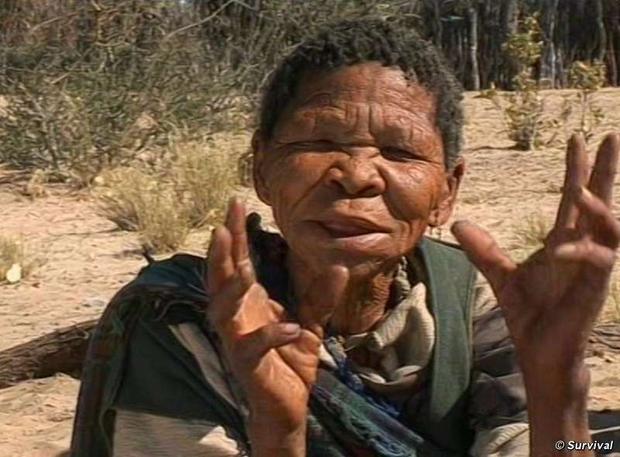Botswana: Botswana People Profile
2012/02/24

The total population in Botswana was last recorded at 2.0 million people in 2012 from 0.5 million in 1960, changing 285 percent during the last 50 years. Population in Botswana averaged 1.23 Million from 1960 until 2012, reaching an all time high of 2 Million in 2012 and a record low of 0.52 Million in 1960. Population in Botswana is reported by the World Bank.

The major social challenges in the country are poverty, unemployment and HIV/AIDS. The high unemployment rate is due partly to the decline of the agricultural sector as a source of employment and partly to the constraints of a largely undiversified economy that is highly dependent on mining, with less attention given to other sectors. Since the mining sector has limited capacity to absorb workers, overall unemployment remains high, particularly when economic growth is less than robust.
The unemployment rate declined from 21.5% in 1996 to 17.5% in 2008. In January 2009, the Ministry of Labour and Home Affairs began to implement a National Internship Programme to enhance the employability of university graduates who may not be employed immediately upon taking their degrees because of their lack of experience. To date, the programme has resulted in the placement of 3 007 interns, many of whom have already found permanent employment in either the public or the private sector.
The major employer in Botswana’s economy is the private sector (56.3% of total employment), followed by the central government (30.1%). Local government and parastatal bodies contribute about 9% and 5% respectively to total employment. Formal sector employment grew by 3% in 2009, while private sector employment grew by only 1.8% owing to the recession. The growth in formal sector employment is due in part to the employment opportunities created by the government for interns.
Although no up-to-date information was available at the time of writing, progress towards the MDGs is likely to be adversely affected by the economic crisis. Some social expenditures were reduced in the last government budget due to fiscal constraints. Before the crisis, some progress had been achieved with respect to poverty alleviation and social programmes (education and health). The percentage of Batswana living below the poverty line had gradually declined from a high of 47% in 1993 to 28% in 2005. The government also established a social safety net targeting vulnerable groups such as orphans, the elderly, the destitute and veterans of the Second World War.
Marriage, Family, and Kinship
Marriage. The various ethnic groups have different marriage traditions. In past practices, most groups permitted polygyny (the taking of more than one wife), a girl's first marriage would be arranged by her family, and marriages involved bride-wealth or bride-service. Tswana marriages in the past were best described as a process, attaining the full definition of marriage often only after many years; steps in the process included requesting marriage and preliminary exchanges, sexual relations but not cohabitation, children, a public celebration, the establishment of a household within the man's compound, and bride-wealth. Bride-wealth is still common, polygyny less so, and while most marriages are still negotiated by family members, the spouses choose each other. Most Batswana register a civil marriage, as well as conduct marriage ceremonies according to custom at home, and many have a church wedding too. People may marry according to customary property provisions or civil community property arrangements, but in both the woman is disadvantaged, and the husband is likely to control the property. Divorce may be sought by women and men, with common reasons including adultery, failure to provide support or household labor, and abuse. But many women today are choosing not to marry at all, opting for autonomy and to retain control over their own children.
Domestic Unit. Most people belong to extended families that share a compound; within the compound the domestic units based upon a woman and her children are discrete. The Tswana pattern of multiple residences meant that families were often not coresidential, as some members worked fields, others tended cattle, and others lived in the village. Modern village-based households are again dispersed, through school placements, labor migration, and urbanization. These patterns have placed strains on the cooperative extended family, but most people still expect demands on their resources and time, and cooperation, from a wide range of kin.
The senior male is traditionally the head of the household, and is responsible for mediating internal affairs and representing the group to larger society. Today, authority in a compound may be diffuse, as younger members with technocratic skills or special agricultural training make many decisions and represent the group to outside bureaucracies. Even more dramatically, almost half of all households in Botswana in 1991 were headed by women.
Inheritance
Inheritance practices vary between groups. Dominant Tswana tradition in the past allotted the management of property (cattle in particular), and offices to the senior son of the deceased. Today, widows and daughters also inherit property, but their claims may be judged less important in court disputes. Nondisputed smaller estates including houses, furniture, small business capital, and clothing, may be distributed among descendants and other relatives by the senior relatives of the deceased, according to perceived needs.
Kin Groups. Tswana patrilineal customs predominate through the court systems, though kin groups are organized according to patrilineal, matrilineal, double-descent, or bilateral principles depending on the ethnic group. Some groups have named clans, others have more fluid boundaries. Kin groups larger than the household or compound group may cooperate for a healing or strengthening ritual invoking ancestors, and should participate in funerals, which are significant events for defining relationships and obligations.
Socialization
Infant Care
Infants are carefully attended to and indulged. Mothers and older sisters carry infants almost everywhere in slings tied across the back. There is a prompt response to crying, with feeding, calming and jiggling, and attempts at distraction with keys or other small objects.
Child Rearing and Education. Toddlers continue to be indulged; adults encourage them to learn words, and jokingly threaten them with beatings or being taken away by passing police. As they get older, however, children are expected to contribute significantly to household work. They are often chastised for "just playing" and "not listening," and comments that they are lazy or bad outnumber praises of beauty or intelligence. By and large, children are spoken to, and should speak deferentially to their seniors.
Many women place children with their own mothers to raise, and the children do household chores for aging grandparents. Alternatively, working mothers will take in a (usually distant) young female relative, or a village girl, to help care for urban children. There is also an increasing use of preschools for the educational advantage they give.
As children become teenagers, they form groups and socialize more outside the household. Most Batswana consider teenagers children, being unable to make decisions or manage relationships; however, these ideas about age categories are changing. Initiation schools were formerly important, and are believed to have been where children learned about sex and relationships, but are held in only a few areas today. Formal education is considered the means to achievement in modern society, but many children receive little support at home to help them progress through school.
Higher Education
Higher education is considered very important by both the government and by Batswana at large. The country has invested considerable energy and money to improve primary and secondary schools, although there remains competition to secure places in senior secondary schools, and many students attend schools far from home. Students aspire to attend the University of Botswana.
- Botswana News
-
- BOTSWANA: Routes Africa forum aims to improve African air connectivity
- BOTSWANA: Economic integration is helping boost trade and investment in Africa
- BOTSWANA: Africa’s economic growth is likely to be slower in the intervening years
- BOTSWANA: Beyond Commodities: How African Multinationals Are Transforming
- BOTSWANA: Africa,Protect Refugees With Mobile Banking
- BOTSWANA: African Union merges science and education bodies
- Trending Articles
-
- CHINA: Forty-six Chinese-owned companies registered in Guinea-Bissau
- GHANA: Ghana steps up to secure electricity supply
- GABON: Gabon moves to solve housing deficit
- TUNISIA: Tunisia augments ICT exports and connectivity
- TANZANIA: Tanzania Breweries now partners with traditional liquor outlet owners
- SOUTH AFRICA: South Africa to extend ICT reach






.gif?1356023993)

